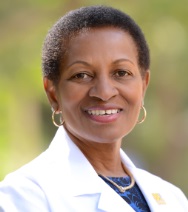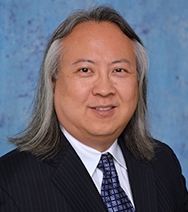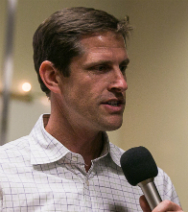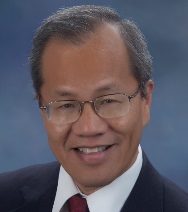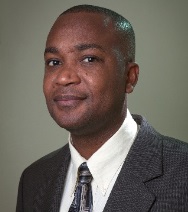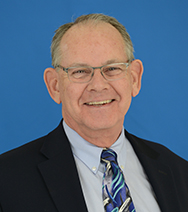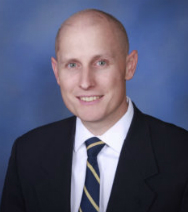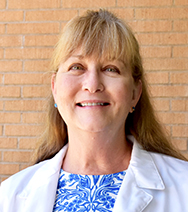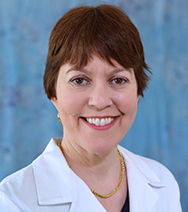
2018 Conference on Teaching, Learning, & Discovery
The conference was held in person on August 18, 2018.
Welcome by Dean Deborah Deas, MD, MPH
The Mark and Pam Rubin Dean of the School of Medicine and Chief Executive Officer for Clinical Affairs.
Keynote Panel: When Doctors Become Patients
featuring Dr. David Horner, Dr. Elizabeth Morrison-Banks, Dr. Mary Marcinko, and Dr. Jerry Dennis
Join us for a lively panel discussion on how becoming a patient with a serious condition changes the way a physician practices medicine.
Breakout Session 1
Teaching & Learning Workshop: Building Success Through Networking with John Luo, MD
Any expert can tell you that networking is a key skill in advancing your career. But how you network is just as important as whether or not you network. Join us for a discussion on how to jump-start your career through effective networking. This session is recommended for faculty, students, and staff.
Class of 2021 Poster Session
- Retrospective and prospective study on continuity of care in the Hispanic/Latino population of Riverside County. Renee De La Parra, Camila Garcia, Yasmin Guiterrez, Aladino Razo
- Vial vs. Pen Insulin Delivery in Diabetes Management. Michelle Oberoi
- Factors related to adherence to oral hypoglycemic medication in T2D in Riverside county. Nikita Kadakia
- Diabetes Management Pocket Card Intervention in a County Setting and its Effects on Hemoglobin A1c. Julia Devito
- Assessing Efficacy of Kaiser Permanente’s Pediatric Concussion Symptoms Questionnaire in Identifying High Risk Patients Compared to Assessment Tools Nationwide. Mohsen Baghchechi
- Assessing Patient Satisfaction After Provision of Mental Health Resources. Chade Aribo, Asha Dasika, Katherine Domenici
- Understanding Food Deserts vs Food Insecurity in Patients with Type 2 Diabetes at the Perris Family Care Center. Taher Bhaijee
- Fighting Poor Protoplasm. Abdullah Uddin
- Get Up to Get Low: The Effect of Exercise on Hypertension. Preston Sitorus
- Facilitating the Management of Type II Diabetes in Latino Patients Through Education. Kathy Gomez, Irvin Calderon
- Retrospective Comparison on Effectiveness Between Different Dual Drug Therapies for Type II Diabetes Mellitus. Julius Daniels, Jossue Jimenez, Miguel Quispe-Sanchez, Phuong Vo
- Human Papillomavirus Vaccination Education and Administration. Niresh Perera
Class of 2020 Papers in Progress Presentations
- AB109 state prisoners consume more healthcare resources than the non-AB109 county jail. Bea Palileo, Jericha Viduya
- Effect of Motivational Interviewing on Compliance and Outcomes for Patients with DM Type II. Jasmine Jafari
- Improving Annual Pap Smear Compliance at the Kaiser Permanente Corona Medical Offices Through Electronic Patient Portal Messages. Kevin Ha
- A Retrospective Study Evaluating Clinical Indicators of Myocardial Infarction 0-60 Days Prior to Event. Kathryn Lewis, Valerie Armstrong
- Improvement of Diabetes Management (HbA1c<8%) 1 in Limited English Proficiency (LEP) Latinos in the Inland Empire (Riverside and San Bernardino Counties). Antonio Garcia
- Influenza: factors influencing patient participation and targeted intervention strategies. Huthayfa Kahf, Yazeed Kebeh, Nicole Margarit, Eric Van Baarsel, Aaron Watson
- Integrating Online Education (EMMI) Programs in Diabetes Management. Mark Halim
- Kaiser Permanente’s Community Health Needs Assessment, states “Diabetes” is the 5th most prioritized health issue in the Fontana and Riverside communities. Sarah Grace, Monica Gutierrez, Akash Patel, Vandan Patel, Jordan Rossi
California Baptist University Physician Assistant Studies
- The Correlation Between Parenting Style and Obesity in Adolescents and Preventative Measures. Sara Yoshii, Madison Stargell, Kelly Tran
- Utilizing the Educational Setting to Identify Depression Symptoms in Adolescents. Arial Bryant, Catherine Chan, Katie Porter
- Prevalence of Type II Diabetes Mellitus in School Age Children and the Effects of Exercise. Julia Grienitz, Meghan Pyle
- Effective Implementation of Healthcare Associated Infection Programs. Andrew Kang, Bryan Curtis, Brody Yardumian
- Investigation of cervical and breast cancer prevalence among Hispanic women: Inadequacies in screening compliance and strategies to circumvent barriers. David Denton, Ryan Budziak, Jonathan Edens
Breakout Session 2
Teaching & Learning Workshop: Using Mindset in Medical Education with Miguel Powers, MD
Carol Dweck’s research on mindset has demonstrated that a learner’s mindset about their own intelligence is a key component of success in education. She describes two mindsets in learners: 1) a fixed mindset which is characterized by a feeling that intelligence cannot change; and 2) a growth mindset which is characterized by a feeling that intelligence can be improved. While fixed mindset individuals tend to avoid constructive feedback, challenging tasks and more effortful learning, growth mindset individuals tend to focus on the process of learning as a goal and equate effort with advanced learning. Join us for a session on how to incorporate this important research into your own teaching and learning. This session is recommended for faculty, staff, and students.
Class of 2021 Poster Session
- Reassessing Blood Pressures for Patients who had an Elevated Blood Pressure Reading at the Start of the Clinical Encounter. Josue Reynaga
- SHARE Intervention’s Effect on Vaccination Decision Making on the Riverside County Patient Population. George Lee, Anne Lyon
- Barriers to Influenza Vaccine Compliance at Kaiser Permanente Fontana. Khoi Bach, Jordan Smith, Joseph Wong
- Increasing Physician Orders for Life Sustaining Treatment Form Completion Through Increased Patient Education and Awareness. Christian Sam
- Technology-Based Interventions for Obese or Overweight Adolescents. Noelle Coen, Jordan Towne
- Weight Loss in Rialto: A Study in Variance. Nicholas Notti
- Initiating Statin Therapy for Patients with ASCVD Risk Using Motivational Interviewing Techniques. Jennifer Grinceri
- Patient Self-Identification of Barriers to Improvement for Uncontrolled Type 2 Diabetes in the Hispanic Population of the Inland Empire. Troy Ruff
- Efficacy of Smartphone Applications in Reducing Patients’ Body Mass Index (BMI). Yatna Patel
- Use of Transient Elastography to Screen for Non-Alcoholic Fatty Liver Disease in Diabetic Patients. Linus Amarikwa
- Motivational Interviewing to Increase Physical Activity in Patients with Cardiac Risk Factors. Michelle Smith, Maura Becerra
- The Correlation Between Vitamin B12 Levels and Osteoporosis and the Impact On Patient Health. Joyce Kim
Class of 2020 Papers in Progress Presentations
- Addressing Pneumococcal Vaccination Rates Through Use of Standing Orders for Nursing Staff. Megan Calzia
- An open-label study to evaluate the efficacy & tolerability of Ecopipam in adults with childhood onset fluency disorder. Jason Tran, Spencer Wang
- Comparing the effects of low-glycemic diet on BMI, Hemoglobin A1c in patients with Type II Diabetes Mellitus. Vanessa Castillo, Tiffany Phon, Jasmin Valenzuela
- Does having a Spanish speaking physician affect Spanish speaking diabetics’ glycemic control in the Inland Empire? Mauricio Bonilla
- Perceptions of the Annual Flu Vaccine in Riverside and Moreno Valley +65 Population. Amina Larbah
- PSA Screening: Factors Determining Patients’ Decision to Receive Screening and Their Perceptions of the Use of Shared Decision-Making with Their Physician. Lauren Quinto
- Racial socialization integration into Pediatric Clinical Settings. Niyolda Larios, Michelle Yang
- Screening for Abdominal Aortic Aneurysm (AAA) in the Ambulatory Care Setting. Rashid Awan, Michael Garcia, Cynthia Ogubuike, Chinedum Oranusi
Breakout Session 3
Teaching & Learning Workshop: Preparing Learners to Receive Feedback with Lawrence Loo, MD
Educators and learners have completely different perspectives when it comes to feedback. A common problem is that students don’t always recognize feedback when it is given. Even when students do recognize something as feedback, they can easily misunderstand or even resent it. Join us for a discussion on how to prepare students to receive constructive feedback. This session is recommended for faculty and students and is open to staff.
Class of 2021 Poster Session
- Improving the Rate of Cervical Cancer Screening Through Scripted Phone Calls. Ashley Advincula, Dev Dhillon, Karim Rashid
- Comparison of Two Approaches for Improving Blood Pressure Management in Hypertensive Patients. Bo Ram Yoo, Iqra Iqbal
- Impact of early intervention with Metformin in lowering HbA1C of pre-diabetic patients and preventing progression to DM II. Eileen Francis
- Diet and Exercise Affecting A1C Levels. Marlene Alfaro, Michael Hall, Alfonso Vera
- Comparison of Diabetic Education Modalities. John Milo Dover
- Impact of Telephone Follow-Up Visits on Diabetes Control: A Multi-Site Single Institution Experience. Gurjot Walia
- Assessment of Improved Access to Fetal Echocardiograms for Early Detection of Complex Congenital Heart Defects in the Inland Empire. Lana Haddad
- Assessing the Screening and Treatment Practices of Nonmelanoma Skin Cancer in Adult Patients. Niusha Bavadian
- Educating Diabetic Patients on Nutrition and its Effects on Hemoglobin A1c. Marjorie Wimmer
Class of 2020 Papers in Progress
- Effectiveness of Motivational Interviewing in a Multi-Disciplinary Patient Population. John Brennan Whitacre, Melinda Ma
- Screening for Veteran Status at Kaiser Meridian. Noah Ghossein, Kevin Westbrook
- Evaluation of Opioid Prescribing Guidelines at Kaiser Permanente Moreno Valley Heacock Medical Offices. Breanna Fell, Mia Montoya, Lina Omary
- Evaluation of the Benefits of Cognitive Behavioral Therapy in Managing Migraines in High School Advanced Placement Students for Improving Their Education, Overall Health, and Quality of Life. Jessica Nguyen, Sang Nguyen
- Identification of Veterans in the Kaiser System to Improve Health Outcomes. Josue Zozaya
- Identifying Limitations for Access to Mental Health Resources at Riverside University Health System Medical Center. Stephanie Dreikorn
- Improving coping skills in Diabetic patients with chronic neuropathic pain via motivational interviewing. Tyler Luu, Michael Seigler, Monica Tulimiero
- Improving foster youth medication oversight in Riverside County. Chelsey Bithell, Tina Tung, Emily Young
Future Physician Leaders Presentations and Community Health Projects Power Point Presentations
Breakout Session 4
Teaching & Learning Workshop:Reclaiming Learner-Centered Curriculum Design: Exploring Emerging Technology-Enabled Approaches with Ian A. Lubin, PhD
Curriculum is the structure we build that frames what and how a learner acquires the knowledge and skills to become a physician. Often, this curriculum focuses on what more than on how. Join us to discover how learner-centered curriculum puts the learner at the center of the equation. This session is recommended for faculty and is open to students and staff.
Class of 2021 Poster Session
- The Effect of Health Coaching Intervention on Health Outcomes in Individuals with Type II Diabetes. Amylee Martin, Stephanie Wong
- Influence of Medication Costs on Patient Adherence to Prescribed Medication Regimen at Riverside Medical Clinic: Patient and Physician Perspectives. Juan Jose Arguello, Joseph Miller
- Introducing patients with cardio-metabolic disease to a plant-based diet through written education. Rebecca Ocher
- Investigation of the Barriers Affecting Patient Return to Follow-Up Visits for Blood Pressure Readings. Andrea Gochi
- Transgendered Content in Riverside Medical Education. Cyrus Nguyen, Josue Reynaga, Rennie Burke, Kevin Mortazavi, Brandon Brown PhD
- Understanding the Relationship Between Postural Orthostatic Tachycardia Syndrome (POTS) and Anxiety in a Pediatric Patient Population. Archana Reddy
- Assessing Effective Health Coach Interventions for Patients with One or More Chronic Condition. Queen-Ivie Egiebor. Adam Basiago
- Improving Depo-Provera Adherence with Automated Phone Reminders. Jasmine Correa
- The effect of nutritional counseling on the health outcomes of pediatric Type 1 Diabetes Mellitus assessed by Hemoglobin A1C measurement. Tyler Moreno
- The Impact of Personalized Coaching in Type 2 Diabetic Patients at the Motion Medical Clinic. Kashif Iqbal, Leon Niluk Senewiratne
Class of 2020 Papers in Progress Presentations
- Type I Diabetes Outcomes in Older Adolescents at Kaiser Riverside. Kleshie Baisie
- Evaluation of the Benefits of Cognitive Behavioral Therapy in Managing Migraines in High School Advanced Placement Students for Improving Their Education, Overall Health, and Quality of Life. Jessica Nguyen, Sang Nguyen
- Self-management of obesity, diabetes, and hypertension through goal setting in the patients of the Raincross Medical Group. Stephanie Runke
- The Effect of Continuity of Care on Patient Health Outcomes. Marissa Fox, Brianna Manes
- The effect of health coaching intervention on health outcomes in individuals with Type II diabetes. Michelle Epps
The Community Service and Research Project Undergraduate Student Presentations
Closing Session
Opening Panelist: Jerry Dennis, MD
Clinical Associate Professor, UCR School of Medicine
Jerry L. Dennis, MD, is assistant clinical professor of psychiatry and founding director of the psychiatry residency program at the U.C. Riverside School of Medicine.
Prior to his retirement, he was medical director of the Riverside County Department of Mental Health, where he provided direction, leadership and coordination of psychiatric/medical services for the County of Riverside as well as services provided at Riverside University Health System - Medical Center, Inpatient Treatment Facility, Emergency Treatment Services and all outpatient mental health clinics and county adult and juvenile detention centers.
Dennis served as the interim chair of psychiatry from 2013 to 2014. He is also an adjunct assistant professor at Midwestern University, Arizona College of Osteopathic Medicine.
He is a product of Indiana University, earning is B.A. and M.D. from the school, then conducting his residency there.
Opening Panelist: David Horner, MD
Assistant Clinical Professor, UCR School of Medicine
David Horner, MD, specializes in family practice. He works in the primary care setting, working with small children to the elderly, men’s and women’s health, and adolescents. He works in the hospital as an internist with acutely ill patients. He is a team physician, working with students at Palomar College and Temecula Preparatory High School, as well as, everyday athletes from all ages and walks of life.
After receiving his undergraduate degree in molecular and cellular biology at the University of Arizona, Dr. Horner attended to his PhD studies in medical pharmacology, doing frontline molecular research in the fields of cardiac remodeling, pain modulation and cancer treatment. He did this all the while he, himself was being treated for cancer that very nearly took his life. Before graduating from the University of Arizona College of Medicine he finished his reconstructive surgeries and has remained cancer free to this day. After medical school, Dr. Horner trained in Internal Medicine for two years at Eastern Tennessee State University, before switching to Family Medicine at University of Arkansas Medical Science to widen his scope of practice and skill set. Upon graduation from residency, Dr. Horner was recruited by Temecula Valley Hospital to work with Dr. Jerry Hizon in Temecula where he now serves on the advisory council for the Temecula City Cancer Task force.
Dr. Horner is a San Diego native and has served a two-year mission for his church, becoming fluent in Spanish, which he uses in his clinic on a daily basis. He is a proud member of the AMA, American Academy of Family Physicians, American Medical Society for Sports Medicine, and Riverside County Medical Association and California Medical Association. He has volunteered for numerous sporting events and is an Assistant Clinical Professor of Family Medicine at UC Riverside.
Opening Panelist: Mary Marcinko, MD
Director of Clinical Skills Year 2, UCR School of Medicine
- Born and raised in Barstow, CA in a Marine Corps family
- Studied B.S. Nursing at Loma Linda University- worked in Barstow, CA as a medically deprived area to help pay back Public Health Grants that allowed me to be able to study at Loma Linda University.
- Worked 8 years as an R.N. in ICU, CCU, and ER
- Went to South Africa and worked as an R.N.
- Had an opportunity to go to medical school in South Africa- University of Witwatersrand, Johannesburg- stayed 13 years working in South Africa in Johannesburg and Cape Town, in both urban and rural areas and resettlement camps
- Returned to the US and did a residency in Family Medicine through USC- Kaiser
- Currently, work in Preventive Medicine at Kaiser in Riverside, CA
- Married to a physician who works at Kaiser and have two sons both Engineers (no doctors!) and three great dogs.
Opening Panelist: Elizabeth Morrison-Banks, MD
Clinical Professor, UCR School of Medicine
Elizabeth Morrison-Banks, MD, MSEd joined the faculty of the University of California, Riverside School of Medicine in 2016. She is the founding program director of the Riverside Community Hospital/UCR School of Medicine Neurology Residency Program. She is board certified in neurology and in family medicine.
She earned her medical degree from Brown University School of Medicine, Providence, RI and a master’s degree in medical education at the University of Southern California. Morrison-Banks completed an internship in family medicine at Harbor-UCLA Medical Center, Los Angeles, CA and a family medicine residency at Ventura County Medical Center, Ventura, CA where she was chief resident.
Morrison-Banks completed residency in neurology at the University of Southern California and a multiple sclerosis fellowship at the University of California, Irvine in Irvine, CA. She is a member of the American Academy of Neurology, Consortium of Multiple Sclerosis Centers and National Multiple Sclerosis Society.
Breakout Speaker: Miguel Powers, PhD
English Professor, Fullerton College
Dr. Miguel Powers, a Fullerton College English Professor, has been awarded both Fullerton College Teacher of the Year and the Extended Opportunity Program and Services Outstanding Teacher of the Year. He earned his doctorate in Education from UCLA in 2015, earning the UCLA Alumni Dissertation Scholarship.
Currently, he co-facilitates a statewide Community of Practice (CoP) implementing and researching Growth Mindset strategies to improve student success. This ongoing CoP is part of the California Community College Success Network (3CSN) and includes multi-discipline teams from over forty colleges. Further, he led a CoP in Oregon and has presented about Growth Mindset in Beijing, China.
In addition, he is part of a collaborative team presenting on Disciplinary Mindsets, combining Threshold Concepts, Reading Apprenticeship and Growth Mindset to foster curriculum redesign and enhance student equity. This project emerged from his service as one of five California Collaborative Faculty Fellows in the AAC&U (Association of American Colleges & Universities) interstate proficiency project.
Locally, at Fullerton College, he serves as the Pathways Transformation Initiative Growth Mindset Coordinator and the Mindful Growth Co-Facilitator, promoting Mindfulness and Growth Mindset across campus.
Breakout Speaker: John Luo, MD
Health Sciences Clinical Professor of Psychiatry, UCR School of Medicine
Director of Psychiatry Residency Program, UCR School of Medicine
Chief Medical Information Officer, UCR School of Medicine
John Luo, MD, joined the University of California, Riverside School of Medicine in March 2015 as a clinical professor of psychiatry and director of the psychiatric residency training program. In addition, he is the chief medical information officer for the UCR School of Medicine and UCR Health.
In addition to the aforementioned duties, Luo is a practicing psychiatrist whose emphasis is on psychotherapy and medication management for patients with depression, anxiety, and schizophrenia.
Luo is a distinguished fellow and past-president of the Association for Academic Psychiatry and is board certified by the American Board of Psychiatry and Neurology.
Luo earned his BS in biochemistry at the University of California, Los Angeles, then earned his MD from the University of Texas Medical Branch in Galveston, Texas before returning to California to conduct his internship and residency at the Harbor-UCLA Medical Center.
Breakout Speaker: Lawrence Loo, MD
Associate Dean, Educational Quality and Outcomes, Loma Linda University School of Medicine
Assistant Dean, Continuing Medical Education, Loma Linda University School of Medicine
Vice Chair, Education & Faculty Development, Medicine, Loma Linda University School of Medicine
Clinical Professor, UCR School of Medicine
Dr. Lawrence Loo, MD is the assistant dean of continuing medical education and vice chair for education & faculty development at the Loma Linda University School of Medicine.
Dr. Loo is a physician educator, who is committed to building strong educational programs that foster the development and growth of physicians along the professional continuum starting first in medical school, transitioning to residency and throughout the rest of a physician’s professional life by facilitating continuing medical education and self-directed learning. He served as the governor of the Southern California region II from 2004-2008.
Dr. Loo graduated from the University of California, San Diego in 1981. He completed his internal medicine residency in 1984 and served as chief resident at the Pettis VA Medical Center from 1984-1985.
Dr. Loo has been a Clinical Faculty member of UC Riverside School of Medicine since 1997.
Breakout Speaker: Ian A. Lubin, PhD
Learning Design and Technology Consultant, UCR School of Medicine
Dr. Ian A. Lubin is a technologist, professional educator, and research scientist specializing in learning and instructional psychology, educational technologies, and international educational development. He has served as an instructional faculty and researcher at various national and international institutions.
Dr. Lubin has edited one book on technology and learning and has authored several journal articles, chapters, working papers, and other consultation publications on cognition and motivation for learning, designing of learning environments, utilization of instructional technologies, teacher/faculty professional development, and education for development in international contexts.
Dr. Lubin serves as a specialist advisor to international development organizations and agencies such as UNESCO and the Commonwealth of Learning. He holds undergraduate degrees in Psychology and Multimedia Instructional Design and earned his MEd and PhD degrees in Instructional Psychology and Technology.
Research areas:
- Learning & Instruction
- Educational Psychology and Technology
- International and Comparative Education
